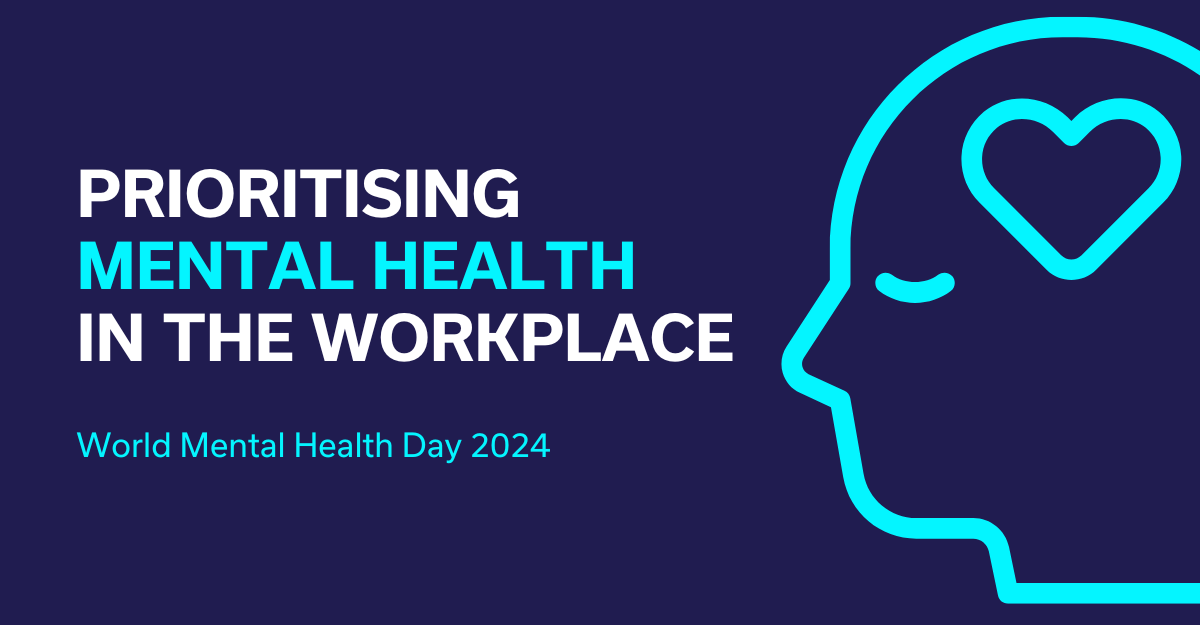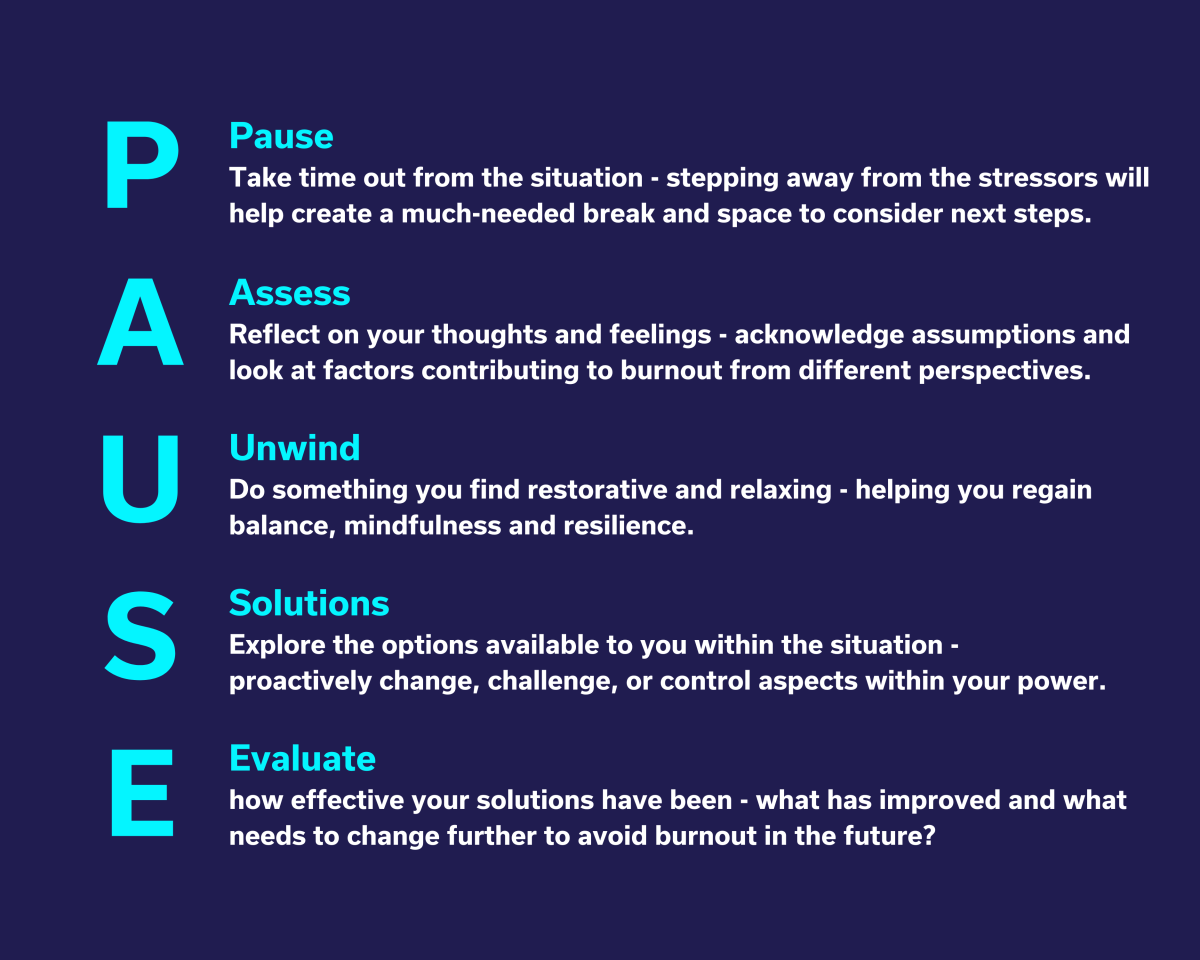 In today's fast-paced work environment, mental health often takes a backseat, leading to decreased productivity, increased absence, and a decline in overall employee morale.
In today's fast-paced work environment, mental health often takes a backseat, leading to decreased productivity, increased absence, and a decline in overall employee morale.
Prioritising mental wellbeing is not just essential for workplace productivity, but also for creating a positive and supportive work environment where everyone feels valued and supported.
On World Mental Health Day, it is important to reiterate the importance of looking after your own and your colleagues’ mental health in the workplace. By creating a culture of mental health awareness and support, we can create a healthier and more productive workplace for everyone.
Why Workplace Mental Health Matters for You
Addressing mental health concerns can significantly reduce stress levels. When you acknowledge and manage your mental health, you cultivate a sense of balance that permeates both your professional and personal life. This balance allows you to approach challenges with a clearer mind, making you feel more capable and in control.
Another benefit of prioritising mental health is increased productivity. When you feel supported at work, whether through understanding colleagues or a positive work culture, you are more engaged and focused on your role. This engagement can lead to an improved sense of accomplishment and personal fulfilment as you contribute meaningfully to your team and see the results of your efforts.
Improved job satisfaction is another crucial aspect of prioritising mental health. A workplace that genuinely values mental wellbeing enhances employee morale and makes daily tasks more enjoyable. When you look forward to coming to work, it not only boosts your motivation but also creates a more positive atmosphere for your colleagues.
Lastly, a healthy mindset enhances your creativity. When you feel mentally well, your mind is freer to explore new ideas and develop in your role. This creativity is invaluable, as it allows you to contribute innovative solutions and fresh perspectives to your work, benefiting both you and your team.
Creating a Supportive Workplace Environment
- Open Communication - Creating a supportive environment starts with open communication. Engaging in conversations about mental health helps break down barriers and creates a culture of understanding. When you and your colleagues feel comfortable discussing these topics, it creates a sense of connection and support that can be immensely beneficial
- Flexible Work Arrangements - are another vital aspect of a supportive workplace. By taking advantage of options like hybrid work or adjustable hours, you can better manage your personal and professional commitments. This flexibility not only alleviates stress but also empowers you to work in a way that suits your lifestyle, enhancing overall satisfaction.
- Employee Assistance Programs (EAPs) - Utilising resources such as EAPs can also provide invaluable support. These confidential counselling services offer you a safe space to discuss your mental health concerns and access the help you may need. Knowing that such resources are available can make a significant difference in how you manage stress.
- Mental Health Training - Participating in mental health training sessions is another way to enhance your understanding of mental wellbeing. These sessions equip you with tools and knowledge to manage your own mental health more effectively, as well as recognise when colleagues may need support. As part of the Skipton Group, we have various members of staff who are trained as Mental Health First Aiders, so colleagues can approach this staff members for support if and when they need it.
Preventing Workplace Burnout
A major part of Mental Health UK’s theme for this World Mental Health Day is Burnout. This is a growing concern in many workplaces, characterised by emotional exhaustion, cynicism, and a reduced sense of accomplishment. To avoid burnout, it’s crucial to recognise the signs early and take proactive measures.
One effective strategy is to establish clear boundaries between work and personal life. Designate specific times for work and stick to them, allowing yourself to recharge and disconnect. Encouraging regular breaks throughout the day can also help maintain your energy and focus.
Prioritising manageable workloads is essential. If you feel overwhelmed, communicate with your supervisor about redistributing tasks or seeking assistance. Remember, it's okay to ask for help when you need it.
Another vital component is creating a culture of appreciation and recognition within the workplace. Acknowledging each other's efforts can create a more positive atmosphere, reducing feelings of isolation and burnout.
Mental Health UK recommend following these 5 steps if you are experiencing burnout in the work place:

By prioritising your mental health in the workplace, you can enhance your personal happiness, productivity, and overall life satisfaction. Together, let’s create an environment where everyone feels valued and supported, paving the way for a healthier, more fulfilling work experience for all. This World Mental Health Day, commit to taking these steps—not just for yourself, but for the collective wellbeing of your workplace community.
You can find further support on workplace mental health this World Mental Health Day at Mental Health UK.
As part of the Skipton Group, we proudly support Mental Health UK.










